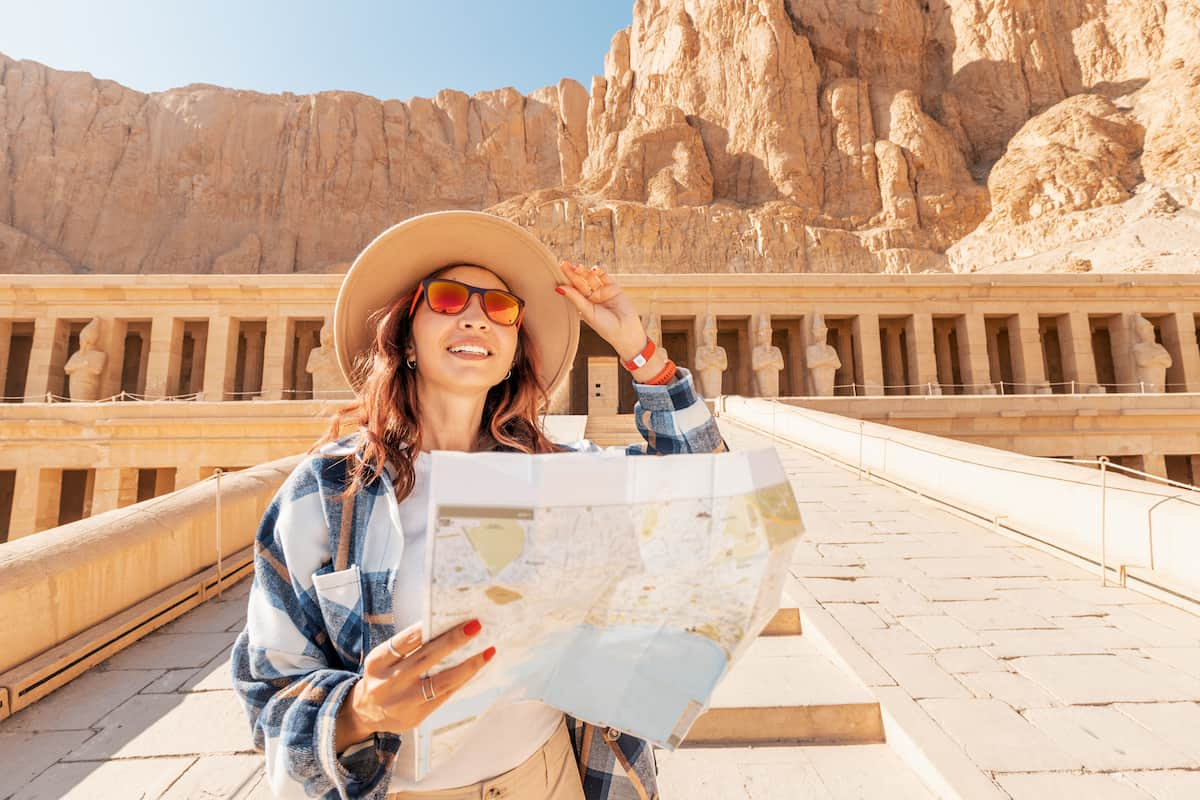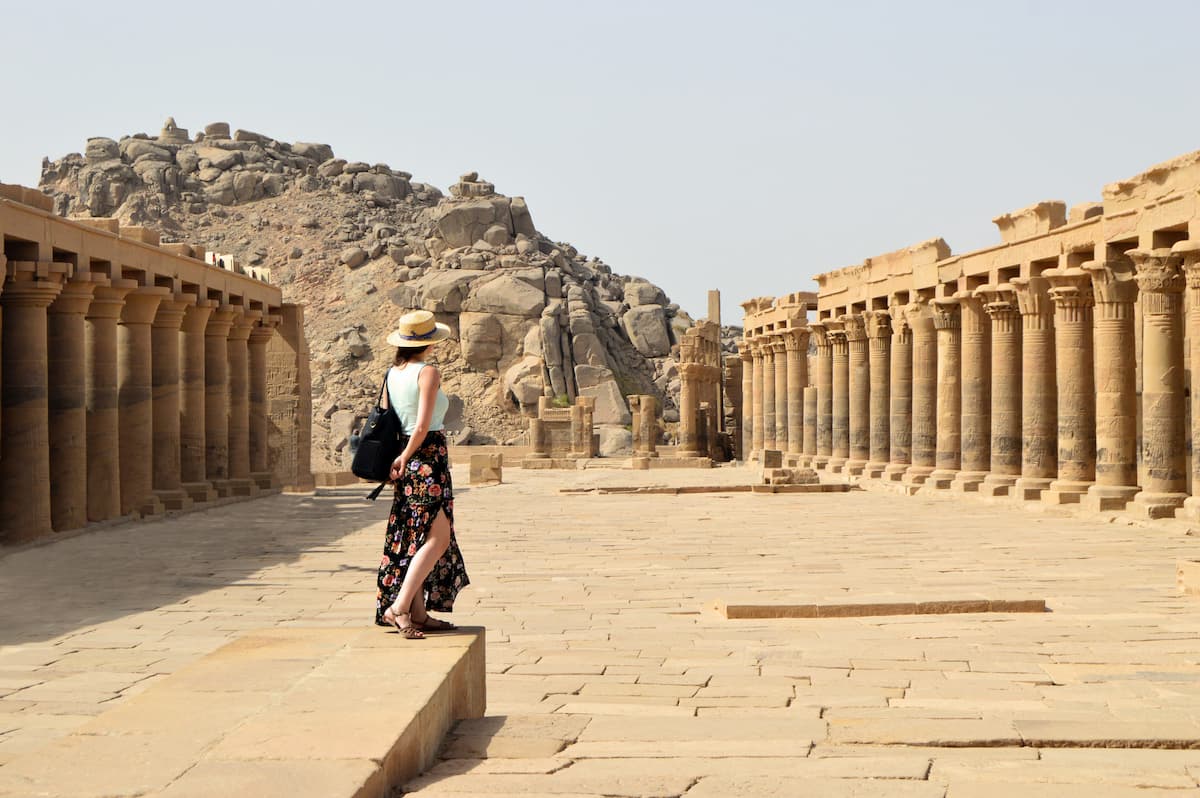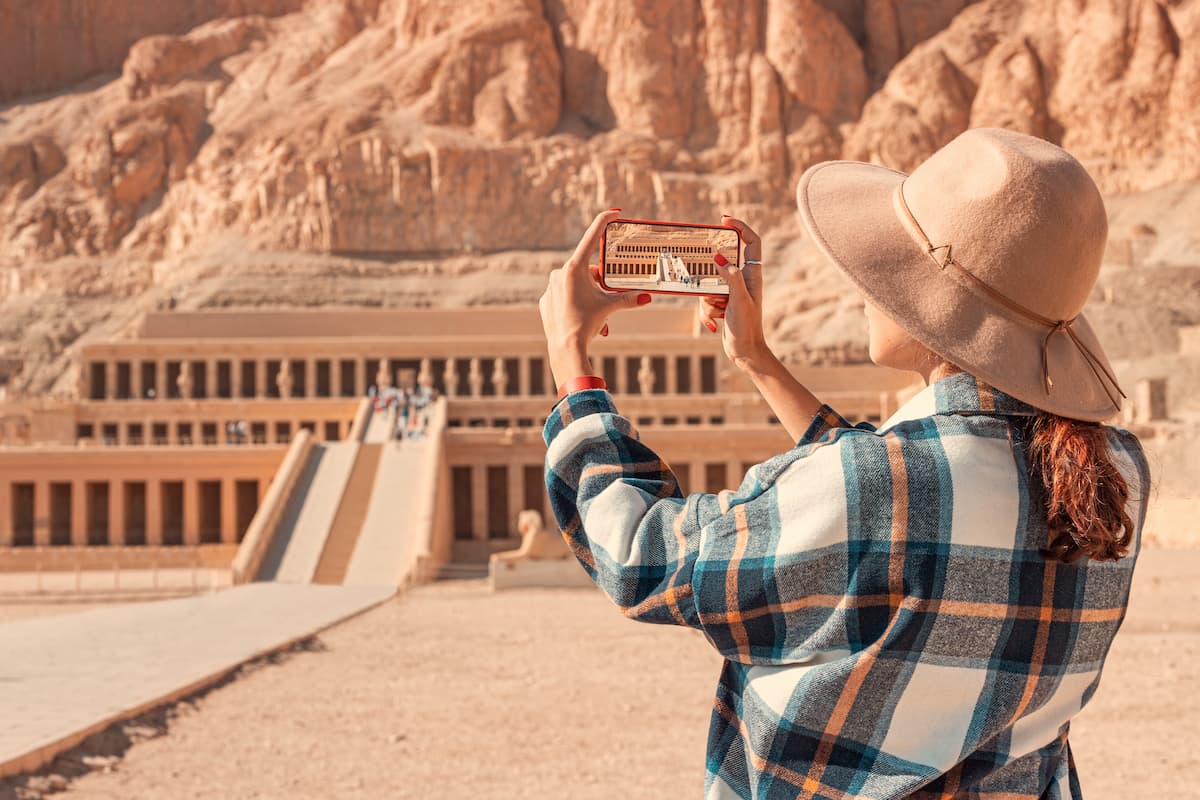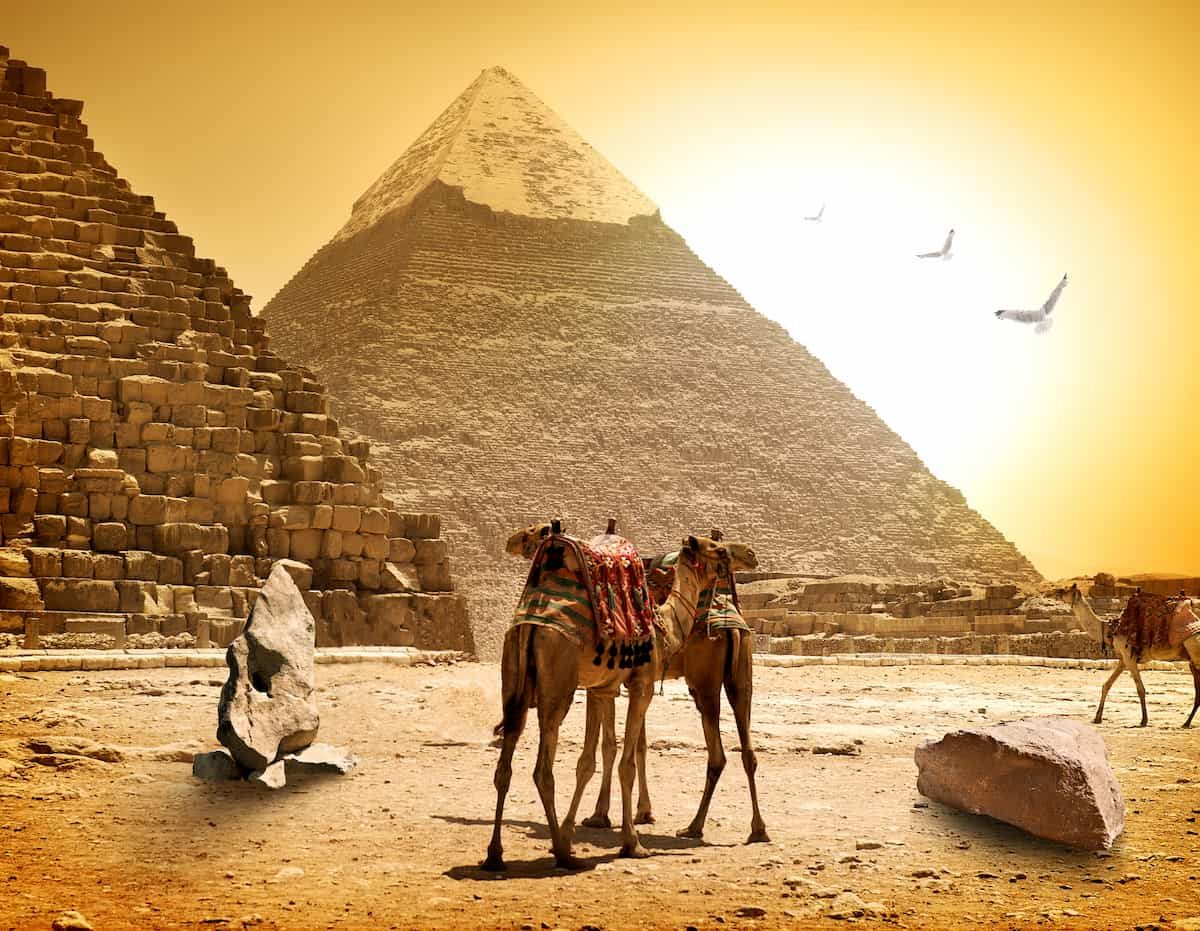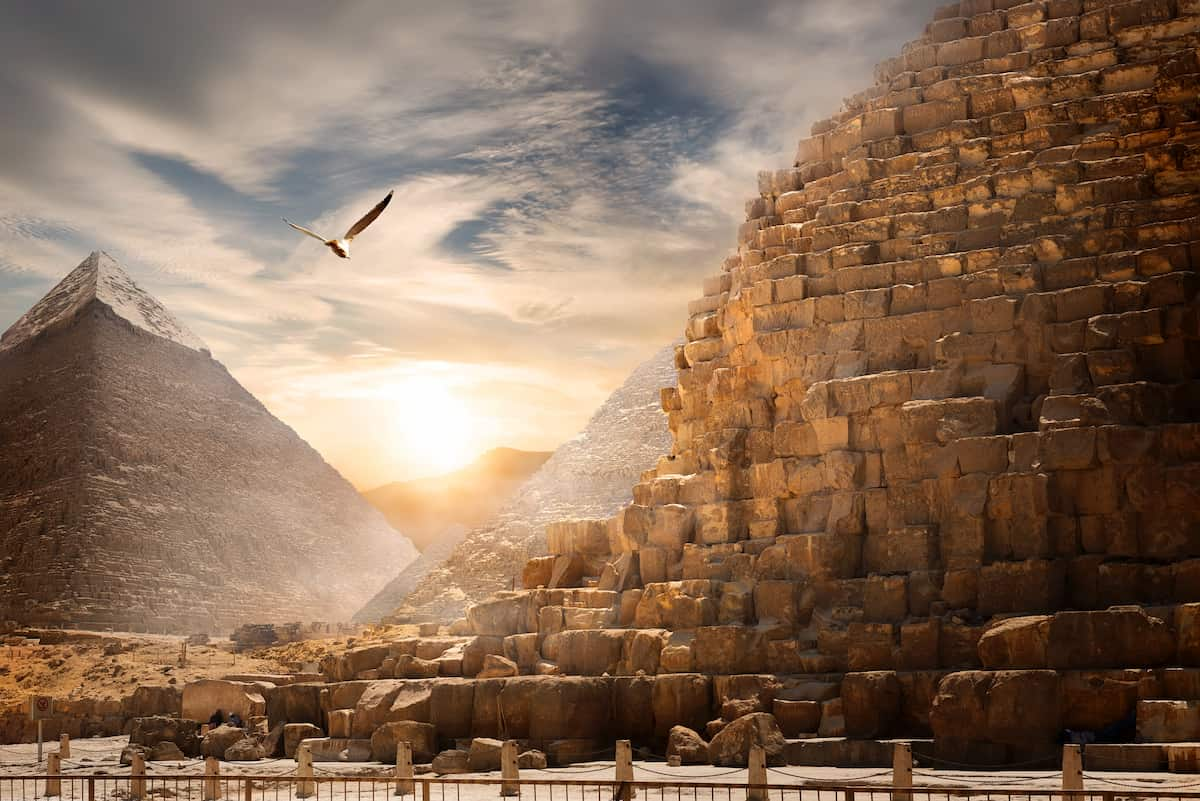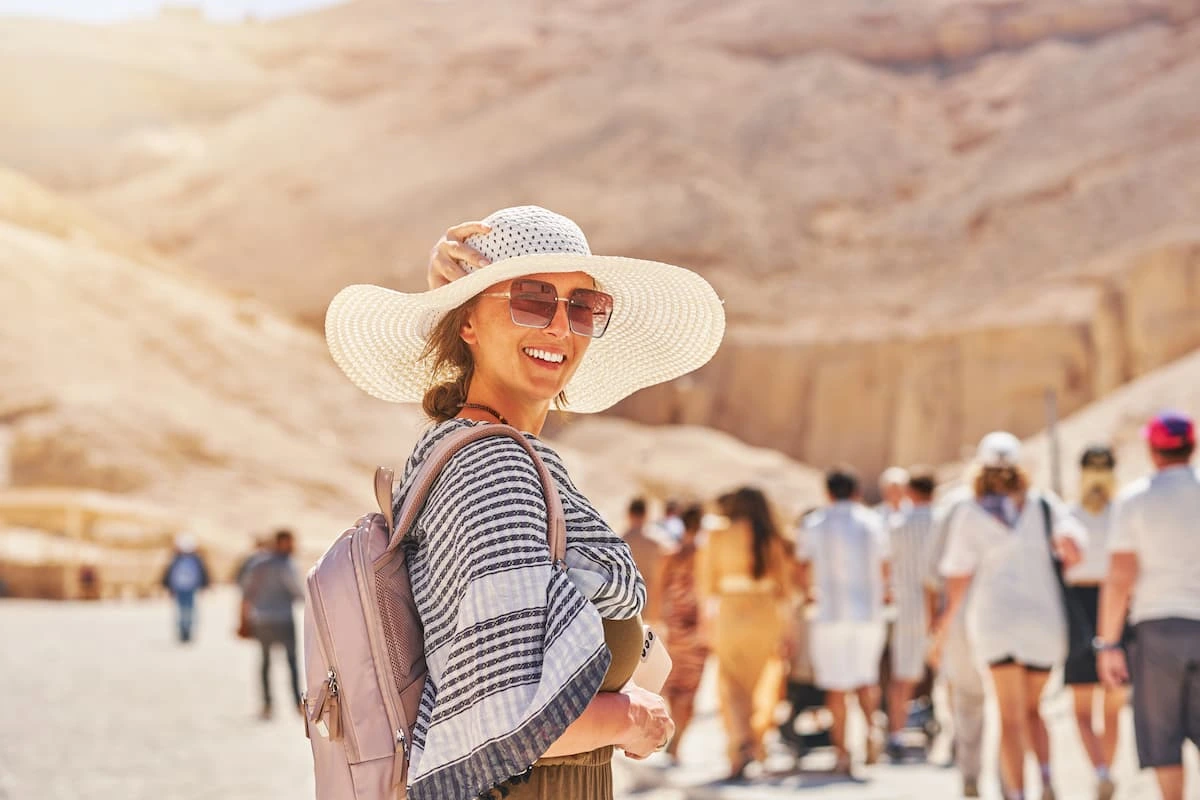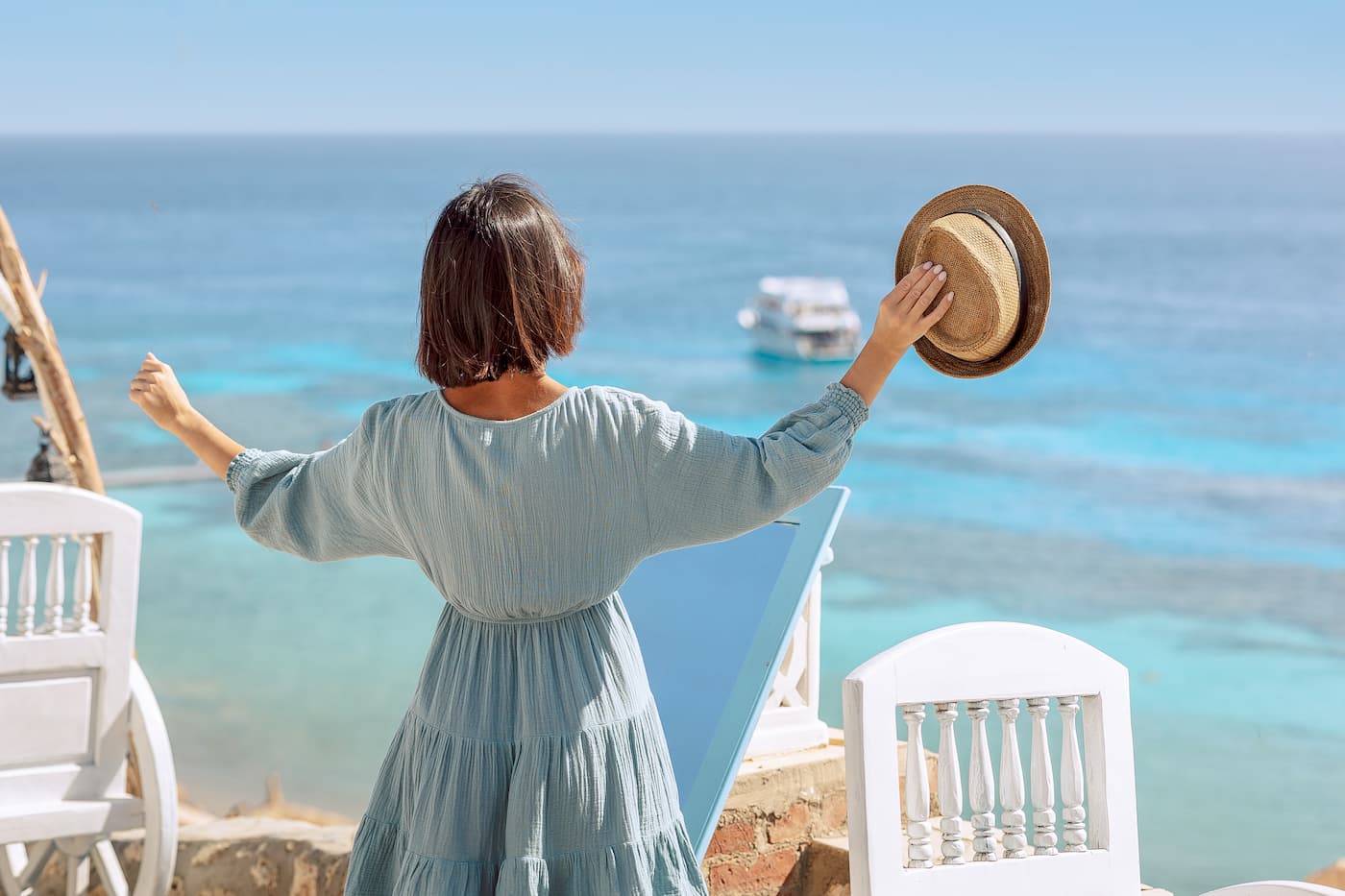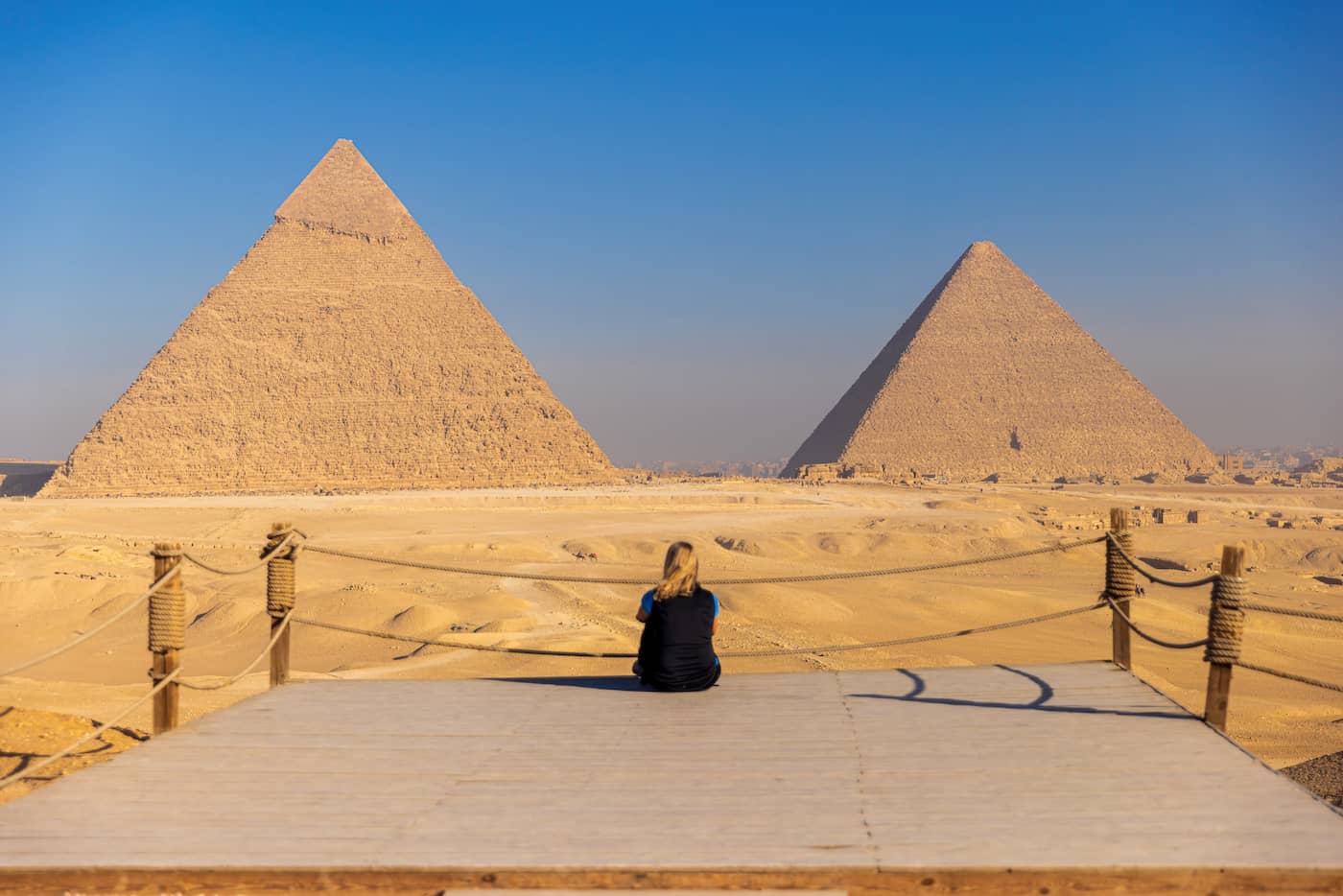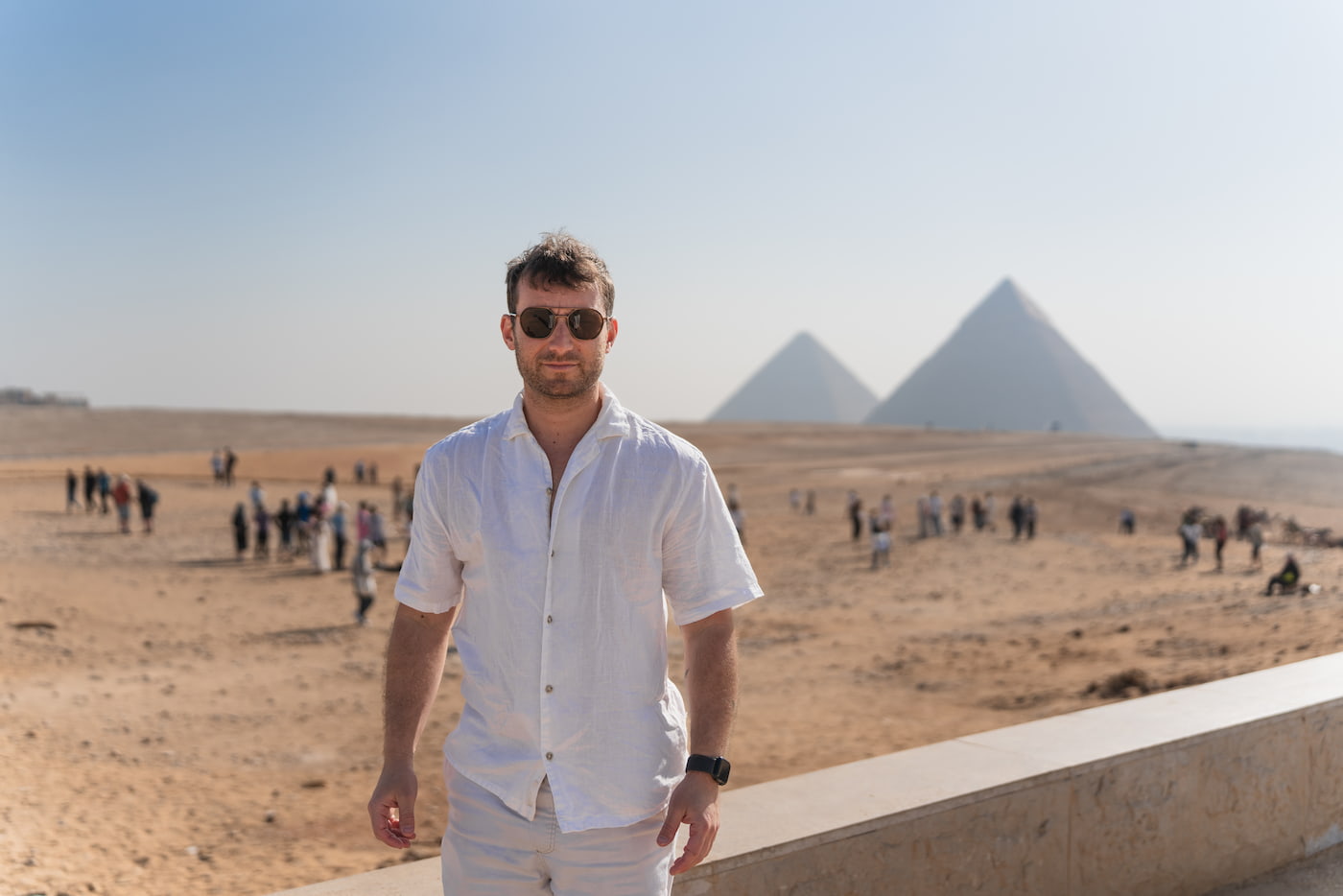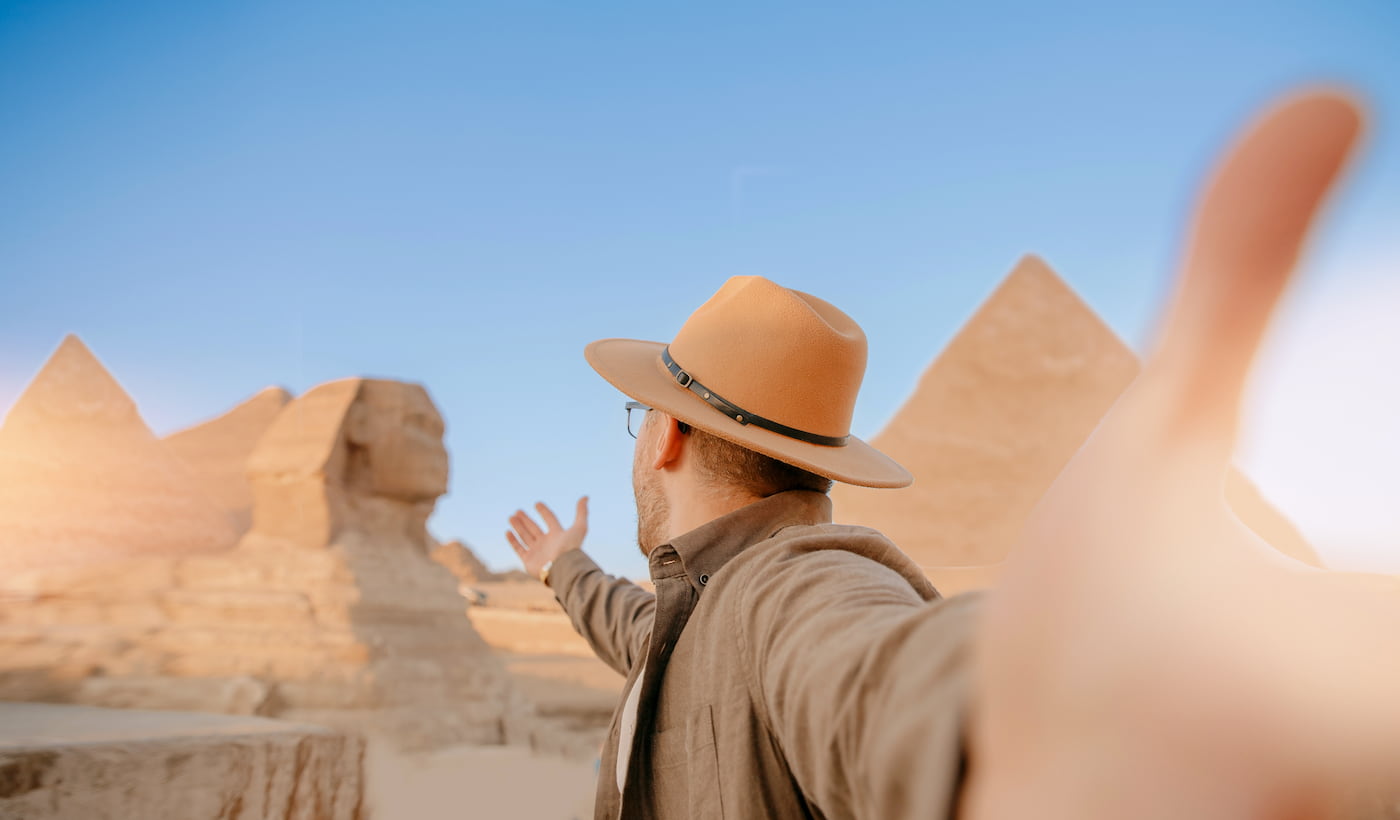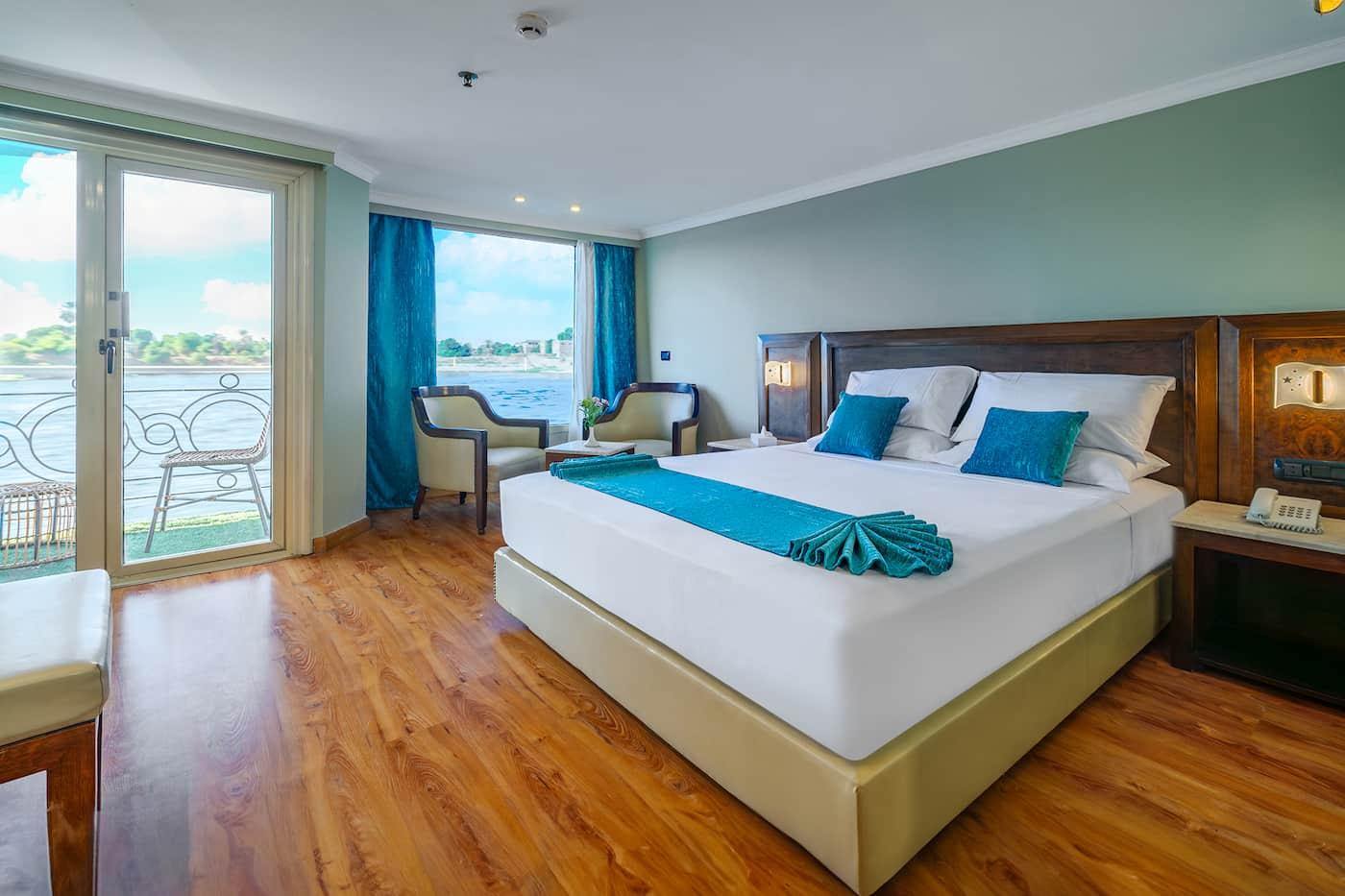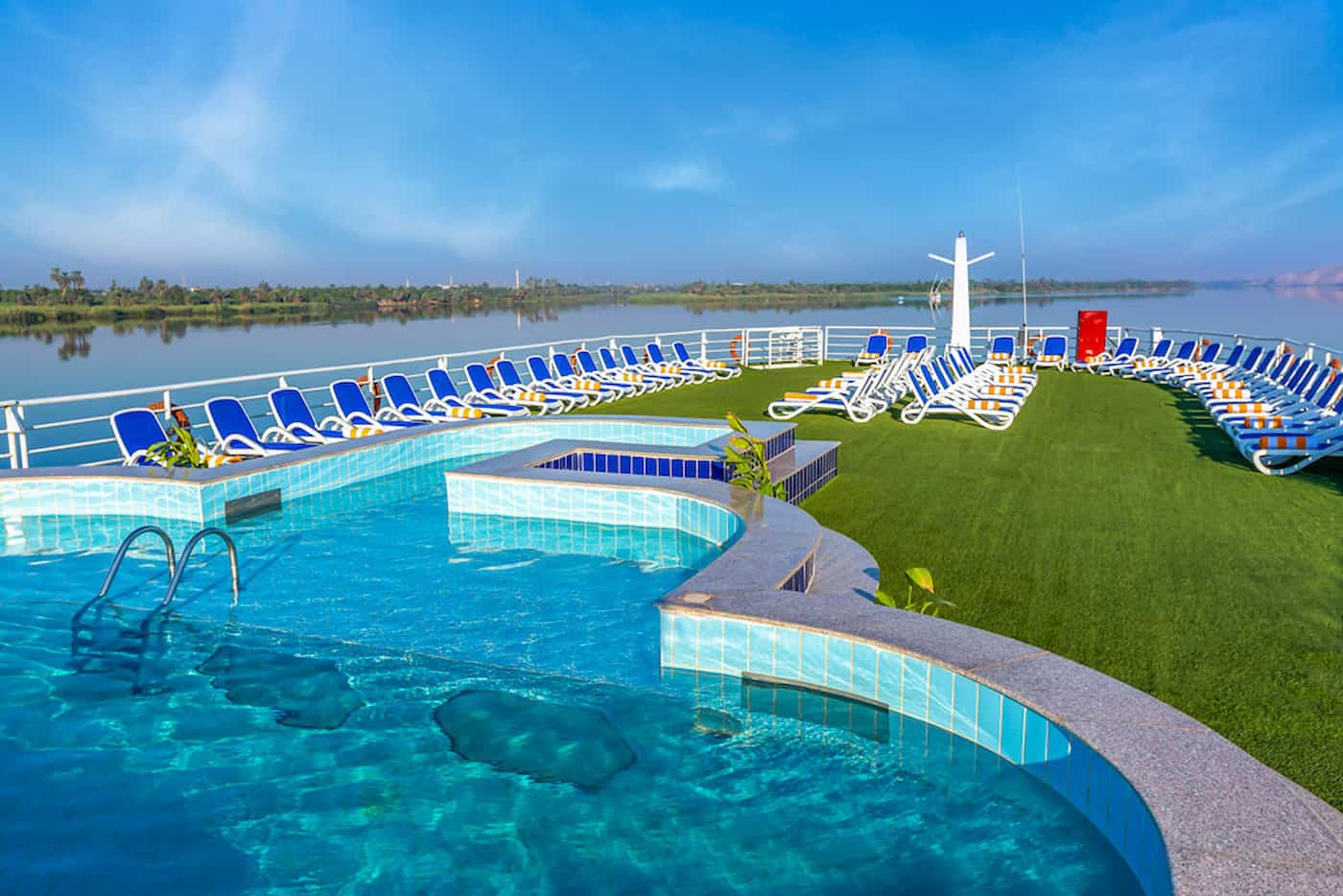Travel to Egypt: Everything You Need to Know for an Unforgettable Trip
A tour of Egypt is stepping into the base of this world’s ancient culture and history. The country offers visitors splendors ranging from the enormous Pyramids of Giza to the River Nile. The image of travel to Egypt is like a time machine, which transforms the present into the past. The cities are clogged with relics that live on throughout the country, and entire blocks of it have been set aside as museums.
This country of pyramids, temples, and ancient hieroglyphics is one of the most famous and interesting countries every traveler dreams of exploring. And the country has always had a religious and moral stranglehold that repels true laughter…beauty is bombarded, physical and plastic vices face demons and sometimes create riches. The kingdom poses, whether in territories or over oneself, that it is best to live.
When exposed to the unconditional universe of nature, the romantic high-altitude deserts concealed in the region’s depths, and mystically charged up to smaller specifics of culture, which end up in ahistorical mode, faces provide an ecstatic thrill filled with a twin heart anticipation. An adventurer with deepest and beauty in their veins and all the wrinkles they kablooey in the magnificence of the vast cosmos, that is the right person for this elegant and eloquent collectable beauty-filled place called Egypt.
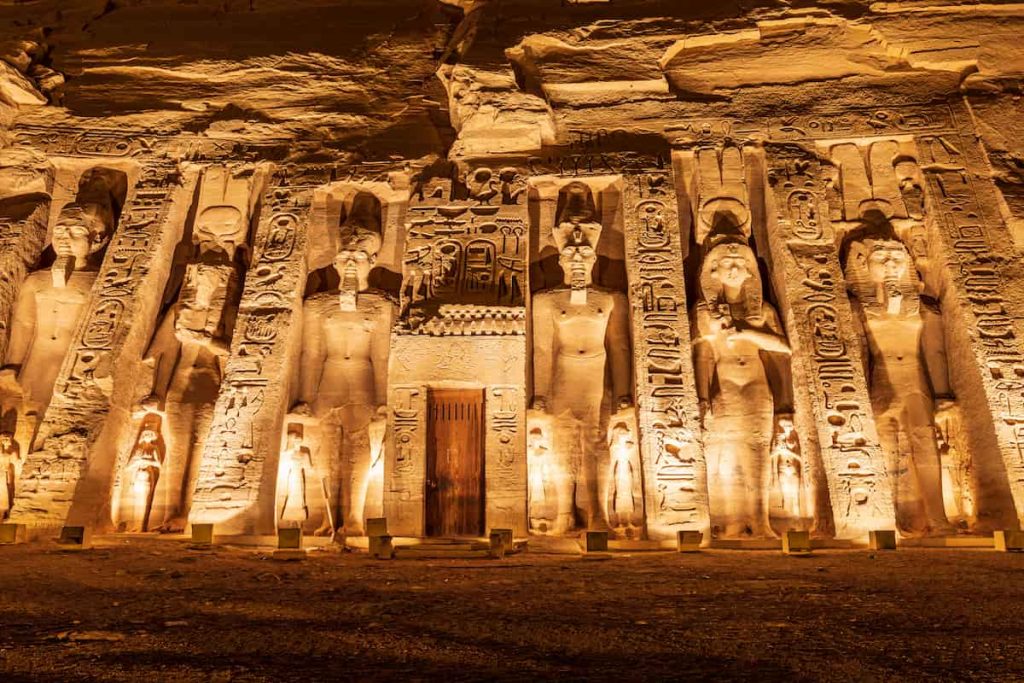
2. Why Visit Egypt?
An immersive experience through time, travel to Egypt is more than just a nation. It boasts a culmination of more than five millennia that is attributable to a fusion of timeless antiquity and seemingly boundless allure of the now. Few places globally allow you to take in the awe of giant pyramids in the early hours of the day and later on take a seat in a vibrant coffee shop and enjoy a nice cup of mint tea, while in the afternoon study beautiful old artifacts or attend a music festival. This cultural anomaly that is created as a result of the interaction between the time and space of the people makes Egypt different from other places.
Travel is the fourth biggest income industry in the world. Countries are nowadays ranked and listed according to the number of tourists visiting them. Among countries classified as favorite tourist destinations, one always appears at the top: Egypt. The country is rich in the number of tourist attractions it harbors, and which are appreciated by both patriotic fans and fair-weather tour enthusiasts. For several years, travelling far and wide has been a favorite among people of distinct cultural backgrounds. Backpackers have become a common phenomenon during various holidays and weekends.
Egypt is More Than Monuments: Egypt’s Nature, People, and Affordable Charm
Besides the grandeur of its history, Egypt stands out for the beauty of its nature and for the diversity of its geography. One cannot lose sight of the fact that this country extends from the endless sandy areas of the Western Desert to the beautiful shore of the Red Sea. Let it be diving in the stunningly blue waters of Hurghada, watching the stars in the white solid desert of Farafra, or calmly floating in the Nile while using a boat, the differentials of Egypt are such that the landscapes exhibit a myriad of variations. There are numerous oases, mountains, fertile banks of the river, and the infinite sky – they will all be wonderful for their exploration and recreation.
To a great extent, Egypt’s people are its greatest treasure. Egyptians are rather famous for their hospitality, their friendliness, and generosity, and there is always a certain pride that accompanies the sharing of their culture with other people. This is the case even when one is stuck between the vicious, annoying crowds in Cairo on a Wednesday market, or when there are almost no modern buildings of any type around you in the middle of one particular archaeological site.
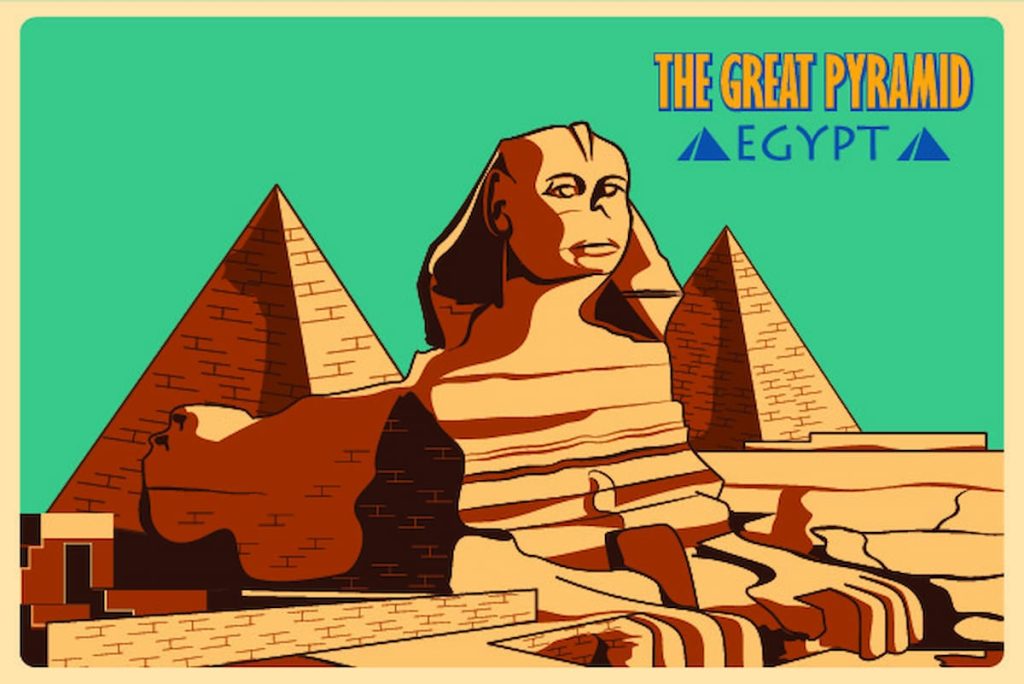
In addition, people adore the fact that it is not expensive in Egypt in any way. You can stay in expensive hotels or keep on the contrary classic guesthouses, the food is cheap and tasty, and even the main sights are worth to be paid a visit. Travel to Egypt is just a perfect travel destination if you wish to see world history, impressive sights, and cultural heritage on the one hand, and picture yourself without money (to be honest, the budget is rather strong).
3. Top Tourist Attractions
-
Cairo: Where Ancient Wonders Meet Urban Energy
With its magnificent blend of past and present, the immense sprawl of Cairo, the Egyptian capital, holds its viewers in awe. There’s so much to see and explore in the city center of Cairo, and talk about the beauty of it. The Great Pyramids of Giza are designed in such a way that they stretch for over 4,500 years, along with the Great Sphinx. It is indeed a beautiful site that no tourist can afford to miss.
Located at the very center of the city, the wonderful Egyptian Museum is home to a priceless collection of ancient artifacts, in addition to other talismans from the death shrine of King Tutankhamun. And if it is the people and their culture that you are interested in, please do visit the Khan El-Khalili, the historical market in the city, where one can also find everything imaginable, spices, perfumes, jewelry, and special handmade gifts. In the Guard of the Pyramids or sitting in one of the Cafes that have been loved for more than 500 years since their opening, I will say this, Cairo is a perfect representation, in every possible sense, of Egypt.
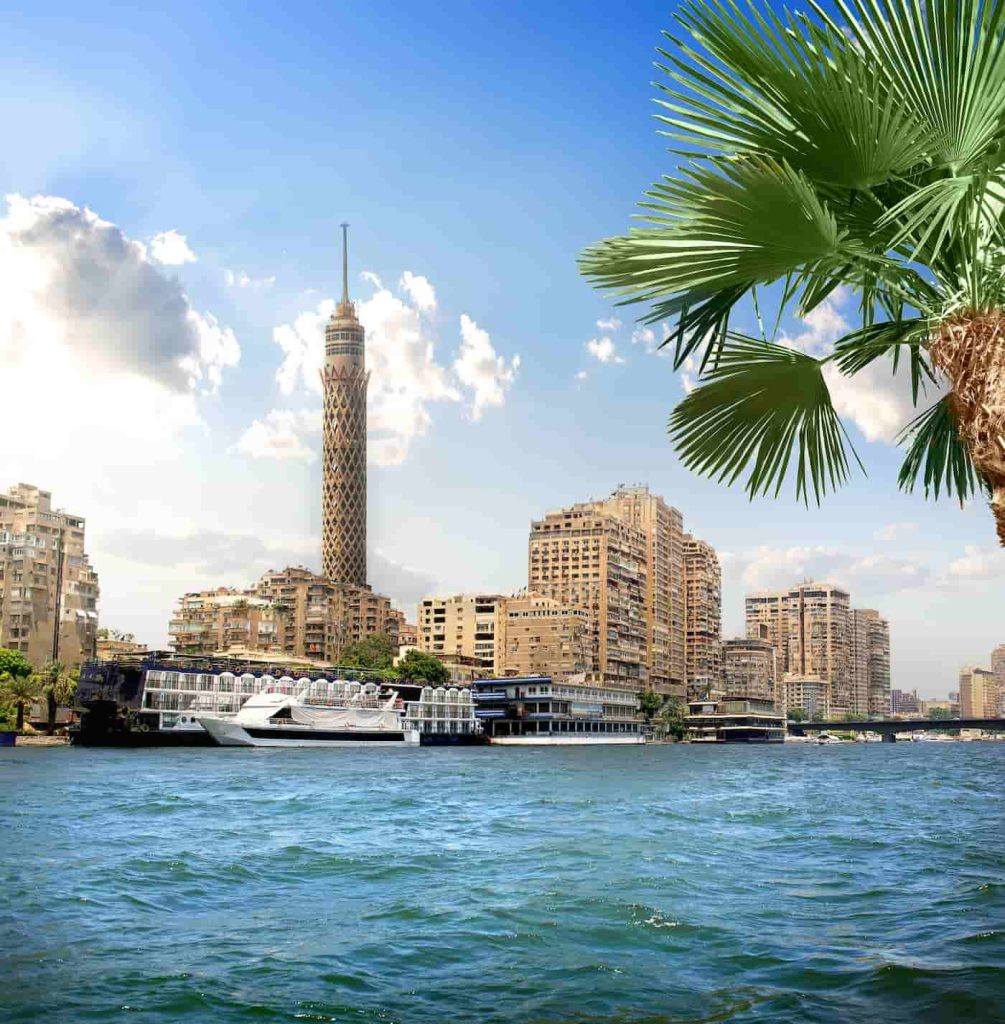
-
Luxor & Aswan: The Soul of Ancient Egypt
Luxor and Aswan, perched on the Nile’s sides, are considered to be the very soul of historical Egypt. Alive history meets everyone in Luxor as visitors gaze into the magnificently decorated tombs of the Pharaohs sunk in the burning sands of the Valley of the Kings, not forgetting the famous one of Tutankhamun. Karnak Temple, which is also among the that is quite eminent as one of the most complex religious structure frameworks ever built, is a magnificent piece of architecture that comprises several towering columns and religious writings as well.
Near the area on the bottom, and serving as the door of Nubia, the visitors will be drawn to another spectacular site in the country, the colossal Abu Simbel. The place is mainly known for the Abu Simbel temples, which are two giant rock-cut temples with colossal statues of Pharaoh Ramses II. However, the temples were earmarked for demolition in a large-scale project of creating the Aswan High Dam, which would have raised water levels, covering the temples. Such a perfect experience of ancient Egypt would be achieved while on a ferry traveling between the two towns or while exploring Luxor and Aswan on dry land.
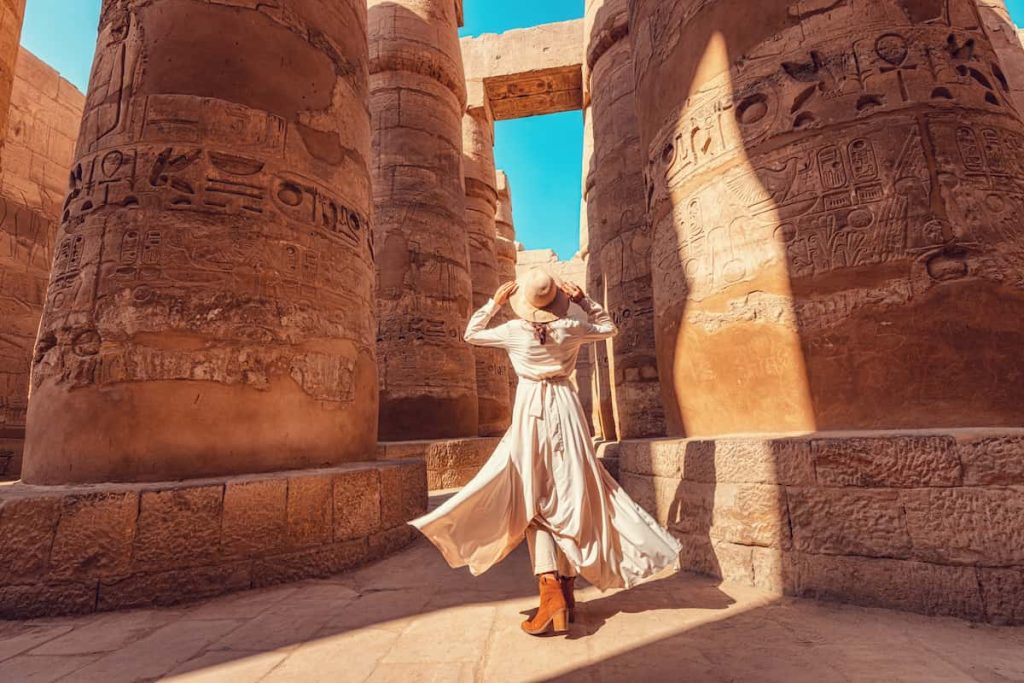
A woman traveler explores the ruins of the ancient Karnak temple in the city of Luxor in Egypt
-
Alexandria: Egypt’s Window to the Mediterranean
Centuries after its glories faded, Alexandria shines like no other place in the entire country of Egypt. That’s why it is dubbed “the pearl of the Mediterranean” and rightfully so. It has an overpowering nature with its ancient edifices, stimulating beaches that draw people to stop and stare, and hues that make you feel like you are stepping into history. Situated within sight of the coast, the Qaitbay Citadel now stands upon the spot where once the Lighthouse of Alexandria, one of the seven wonders of the ancient world, was raised.
Just minutes down the road, the staggering Bibliotheca Alexandrina awakens this taste of ancient books in the modern era and achieves a tent-like structure. Hailed within the civilization’s ruins are the few cultural fragments that survived, such as ancient Roman theaters, catacombs, and stately houses, which are living reminders of that multicultural age. A fisherman and academic city, with slight digressions in terms of French-inspired architecture, literature, and art, this is indeed a more beautiful Alexandria than the imagination struct.
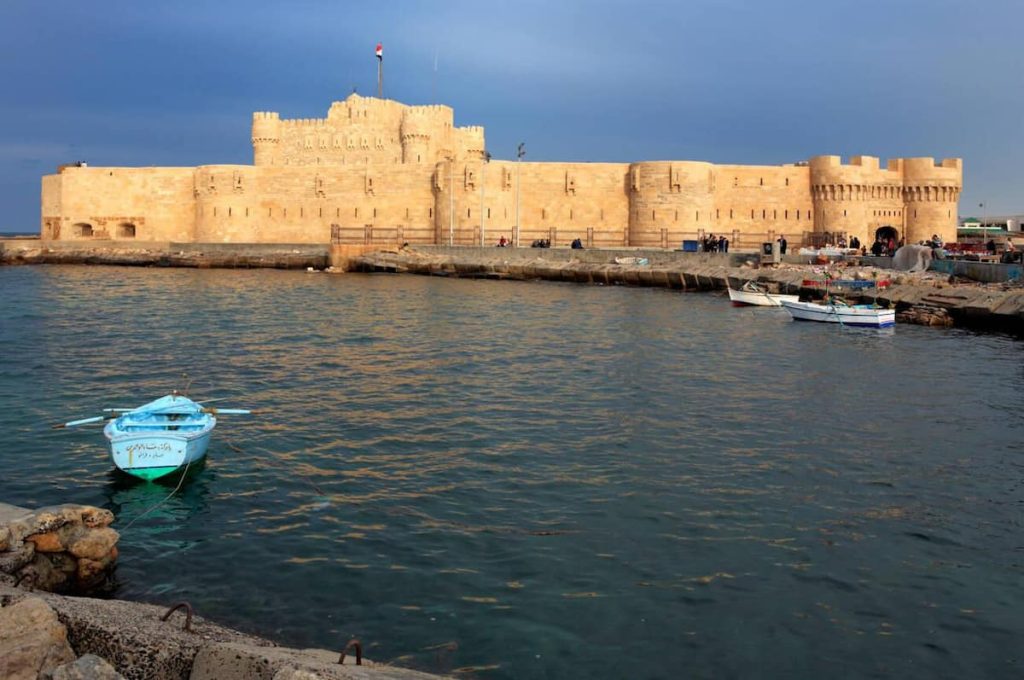
-
Red Sea Resorts: Sun, Sand, and Underwater Wonders
Egypt’s Red Sea hotels are a paradise if you want an equal dose of relaxation and adventure. Hurghada and Sharm el-Sheik are among the popular destinations in the region, known for their pristine waters, dynamic coral reefs, and golden beaches. As intriguing as diving the new shipwrecks with the marine fauna is, a sunny day lapping up the sun on a shore curve offered by the Red Sea coast. Hurghada offers an active nightlife comprising beach clubs, watersports, and desert safaris, while Sharm provides luxe hotels, great nightlife, and access to Ras Mohammed National Park, a diver’s heaven. The entire year of sunshine and relaxed pace atmosphere welds the Red Sea of Egypt into an alluring escape for beach lovers and underwater explorers.

-
Siwa Oasis & White Desert: Egypt’s Hidden Treasures
Far from the hordes of tourists, Siwa Oasis and the White Desert provide a spectacular view of Egypt’s wild, untamed beauty. Secreted away near the Libyan border, Siwa is a calm, palm-filled retreat with a dash of Berber civilization and ancient mystery. Famous for its salt lakes, natural springs, and Temple of the Oracle of Amun, who practiced his craft from there, allegedly around 331 BCE, alongside Alexander the Great, Siwa just seems to strum against time.
On the other hand, the White Desert in Farafra draws its visitors into a surreal world, a chalky universe of rocks shaped by centuries of wind and sand. Camping here under the stars, along with these ghostly white appearances, is a truly otherworldly experience. For adventurous travelers yearning for that essence of authenticity and real escape into nature, these are the remote corners of travel to Egypt holding the last traces of magic off the beaten path.
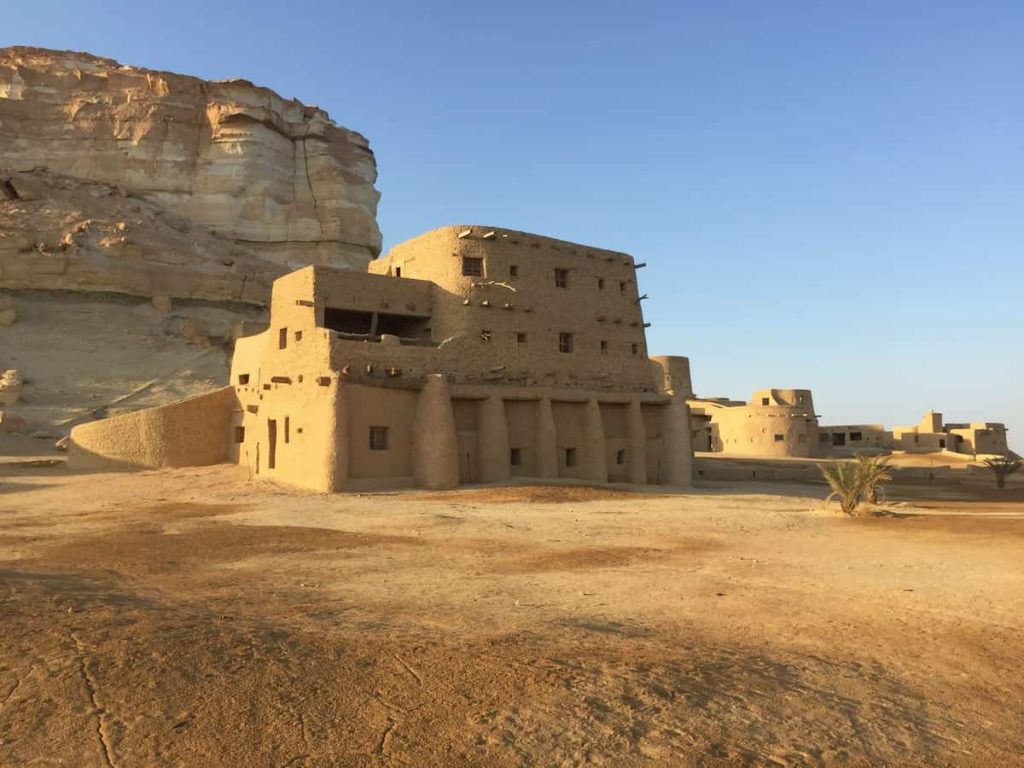
4. Best Time to Visit Egypt
Trip timing to travel to Egypt dictates your entire experience. The primary tourism season, from October to April, is generally cool and pleasant, especially for Cairo, Luxor, and Aswan. The colder months are considered the best time to visit temples, pyramids, and desert sites, but are also prime time for Nile cruises and festivals, with all the trade-offs of price inflation and crowds.
From May to September, heat pours down heavily, especially in Upper Egypt and the deserts, and the temperatures soar way above 40°C (104°F). This weather is excellent for beach parties by the Red Sea. Hurghada and Sharm el-Sheik remain breezy and have warm sea temperatures for diving and snorkeling.
Ramadan is not only a holy month for Muslims, but it can also give you a special cultural flavor with lively nighttime gatherings, traditional foods, and a spiritual ambience. But during the daytime in conservative areas, some services may be limited, and eating in public is frowned upon.
Simply put, really what makes the difference is the purpose of your holiday, the cooler months for archaeological pursuits of ancient lands, with the summer for tanning on sun-washed coastlines.
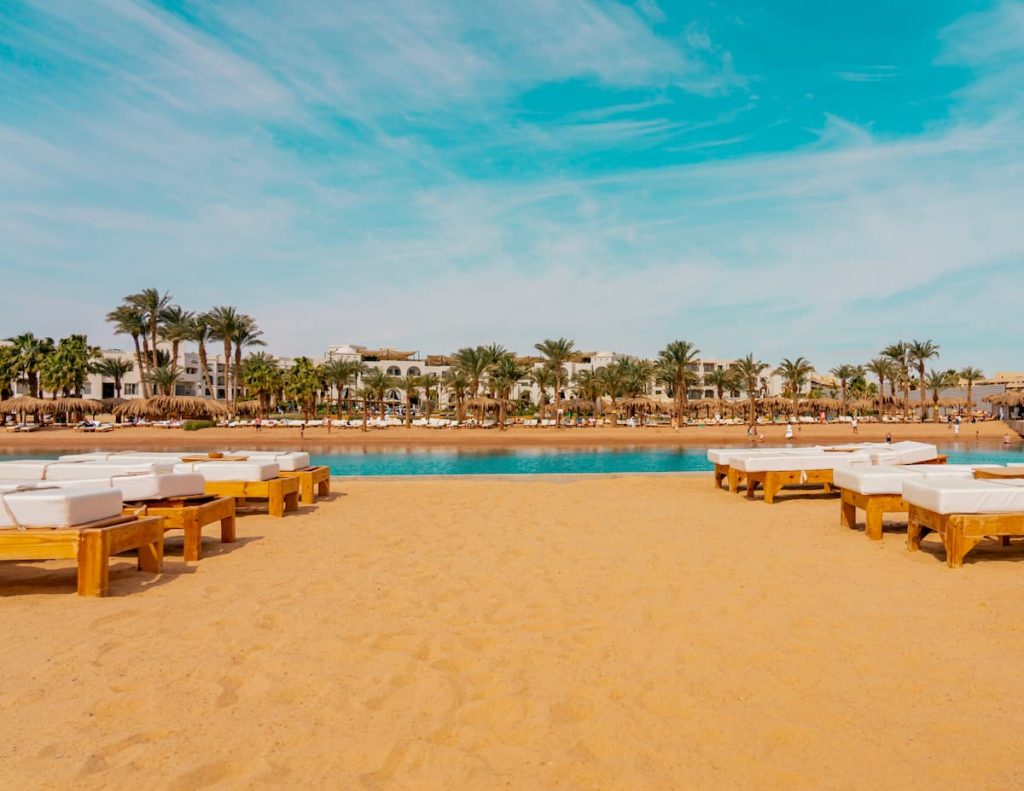
5. Visa and Entry Requirements
Numerous travelers consider it easy to enter Egypt; with more flexible terms of entry, they can select different international gateways. Nationals of certain dozens of countries can procure a visa on arrival at all major airports such as Cairo, Luxor, Hurghada, and Sharm El Sheikh International Airport. Generally valid for thirty days, this tourist visa is a single-entry one costing almost to 25 USD payable in cash upon arrival. It surely is a handy last-minute option for those who decide on a spontaneous excursion to Egypt.
However, since some like to plan, there is now a genuine e-visa option. Thus, travelers can apply for a visa online before departure and receive the approved visa through email they have to print out and present upon arrival. It will be a way to skip long airport queues, single or multiple entries, depending on the option chosen. A valid passport with a 6-month validity period; a recent photo, proof of accommodation, or travel itinerary shall usually constitute the primary requirements.
Egypt boasts several officially recognized crossing points. Most international visitors arrive by air through Cairo International Airport, but the direct commercial flights to other tourist destinations like Hurghada, Sharm El Sheikh, Luxor, and Marsa Alam also provide the visa-on-arrival and e-visa option. Land crossing is practicable at the border gates from Israel (Taba crossing) and, to a lesser extent, from Libya and Sudan. Egypt’s international Red Sea ports, mostly located in Alexandria and Safaga, transit cruise passengers with e-visa or visa-on-arrival avenues, depending on the traveler’s nationality.
Though the regulations for visa issuance are made with a fairly traveler-friendly bent, checking the particular requirements of a nationality beforehand is best. Some nationalities have to apply via an embassy or be part of an organized tour. In a nutshell, a smooth visa leads to a smoother entry for a traveler into one of the most interesting countries around.
6. How to Get to Egypt
With its excellent transportation network and strategic location at the crossroads of Africa, the Middle East, and Europe, Egypt boasts convenience in terms of entry. Egypt has several big international air hubs that are international; Cairo International Airport is the busiest and commonly accepts anybody from abroad. Other airports include Hurghada and Sharm El Sheikh, and also Luxor and Marsa Alam, which mainly accept seasonal as well as charter flights, especially from the cities of Europe. There is an immense availability of direct flights into Egypt from the principal hubs of Europe, the Middle East, North Africa, and even from major states in the United States. This makes Egypt highly accessible, coming into the country from London, Dubai, Frankfurt, Istanbul, or maybe New York.
At sea, cruise ships give docking privileges at Red Sea ports (Alexandria, Safaga, and Ain Sokhna), providing a beautiful alternative for entry into the country. Overland is possible if you can cross land borders into Egypt from Israel at the Taba crossing, and, rarely, from Libya or Sudan, as these routes would best fit experienced or regional travelers. Regardless of your selection, Egypt offers a number of gateways that will shape the start of your adventure.
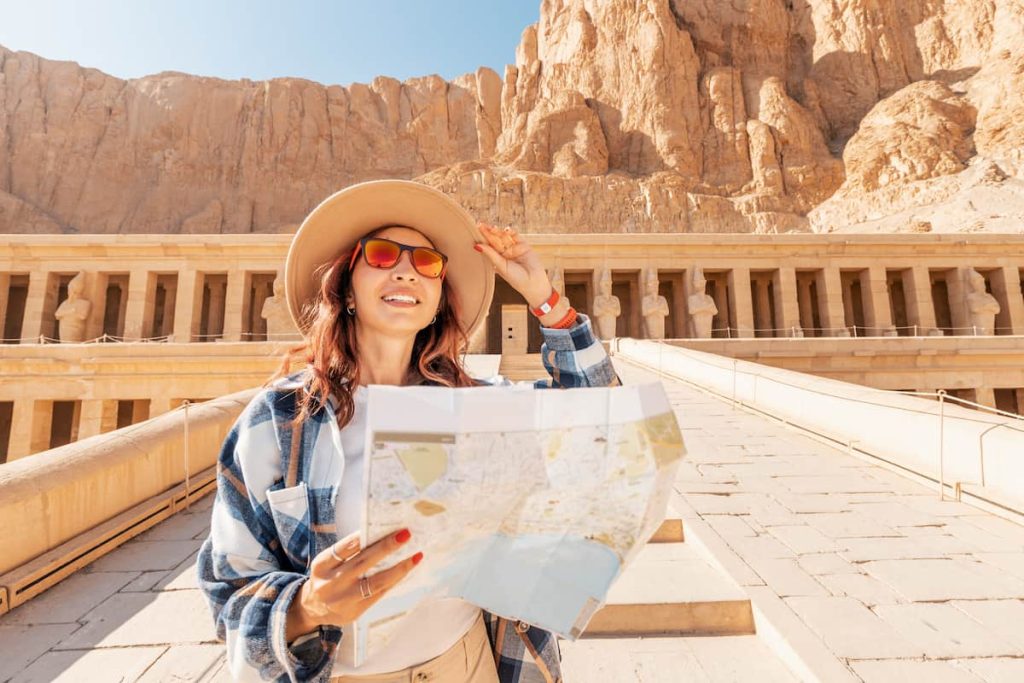
7. Transportation Within Egypt
Traveling in Egypt is quite easy with its array of transport modes, which can cater to different interests, especially the budget-conscious. It is especially important to note that Egypt has a number of airports within the country, and there are daily flights between major cities such as Aswan, Luxor, Cairo, and other cities along the coastline like Hurghada. Chapter Fluflights relatives have receptions. All the visitors will appreciate that because it probably takes less time to reach Cairo.
Even most people will agree that this specific form of travel is preferred as it is the more practical one. The people on board will also get a quick tour of the desert valleys on the way. This trip will give you an interesting perspective of the desert, flying over it. All the visitors will appreciate that because it probably takes less time to reach Cairo. Even most people will agree that this specific form of travel is preferred as it is the more practical one. The people on board will also get a quick tour of the desert valleys on the way. This trip will give you an interesting perspective of the desert, flying over it.
Getting Around Egypt: Trains, Taxis, and Timeless Nile Cruises
It is not only air but also land travel which is a particularly good possibility in Egypt, primarily because of the extensive train network in the country and the movement in the section of the country which extends from Cairo to Upper Egypt, most of it being next to the River Nile. The overnight trains linking Cairo to other towns such as Luxor and Aswan are quite popular with tourists, courtesy of their standards of service and mode of transport. Most cities and settlements are linked by buses, which are cheaper and can take longer than trains, but are not as comfortable and are generally slower.
The statement was, of course, not true. The lack of taxis and the difficulty of finding them is a disadvantage in some countries, but in places such as Cairo and Alexandria, cabs are too many cabs. Against this backdrop, the appearance of new applications such as Uber or Careem provides a reliable service for their clients and drivers in the capital and in most major cities.
For a more relaxing travel and still exploring, you may consider a cruise on the Nile River up in Upper Egypt: indeed, it is an enjoyable and clean way to travel back and forth between Luxor and Aswan, without forgetting sites such as temples and statues by visiting such calmness. Whether in haste or simplistic pursuit of pleasure, by the planes, by the cruises down the Nile, or by the trains, designed specifically for the travelers on both occasions, Egypt offers one of the largest numbers of ways there are to get acquainted with its land and history with one’s own eyes.
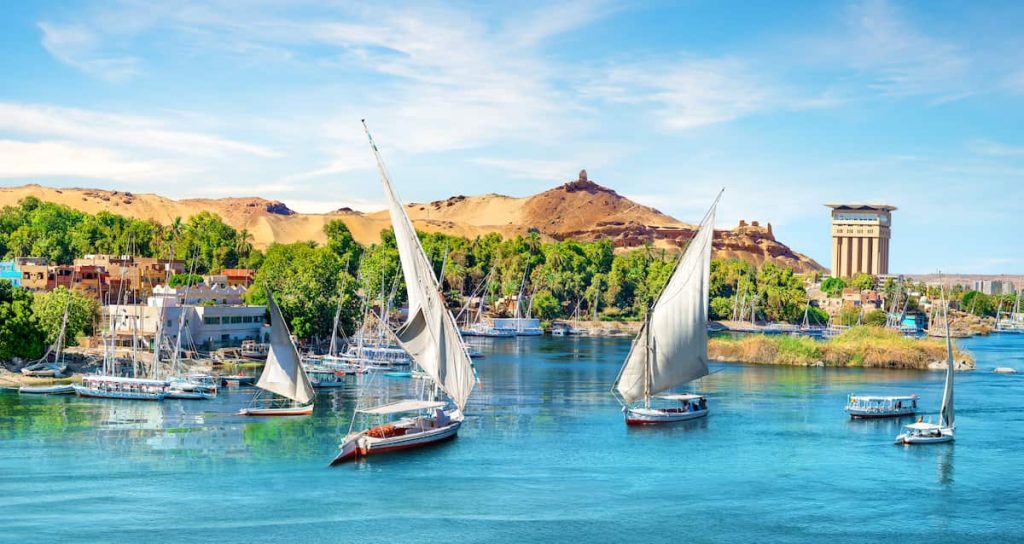
8. Where to Stay In Egypt
Egyptians boast of a very diverse range of places to stay. You can find something that is quite affordable or super luxurious, depending on your budget. It begins from cheap, backpacker stocking Morrison’s to medium range comfort room service hotels to the star class facilities which indulge their guests to the core. While the reservation’s love of still couthly put in place of class hotels is met with places in plenty where calling them guest houses sounds more appropriate.
Sprawling high-rise buildings provide more hotel rooms over the wider landscape of the cities, while others have a river running underneath. In a conventional sense, the hotels along the Nile Valley and urban centers take a different shape. From the accommodation side of view, too, there are several authentic lodges located near temples or residential small quiet portions of the river, not far away from the Nile here is where a calm night can be spent recuperating from the fatigue of touring.
On the shores of the Red Sea, such locations as Hurghada, Sharm el-Sheik offer vacationers several hotel complexes by the sea; the hotel reservations are often all-inclusive and include private beaches as well. Furthermore, they offer high-level diving services. In remote areas, travelers may also find eco-resorts or even a Siwan mud-brick qasr for accommodation. If one prefers traveling back in time, Oman offers exclusive stays in the tranquil locales that are culturally rich, such as Siwa Oasis, and the antiquated estriha in the forgotten regions of Aswan, where Nubian villages can be found. Whether you opt for 5-star accommodations or would rather experience the Egyptian way of life instead, Egypt has a place for everyone; guests will also be more than pleased at the competitive rates, which are well-aligned with the global economy.
9. Egyptian Culture and Etiquette
Getting to know Egypt basically implies that you accept living with people who have a warm and spiritual culture which springs from hundreds of years of civilization and practice. Whenever we go to places, we should be respectful even if we come across very courteous individuals. Regardless of the positive attitude Egyptians have towards them, there are generally accepted customs that every visitor should adhere to.
It is highly recommended for female travellers to dress conservatively, particularly when in mosques, rural villages, and local towns, shoulders and knees should be covered, and ladies may be requested to wrap their heads inside the places of worship. Baksheesh, or tipping, is a long-established concept in Egypt and is a part of the social fabric. Particularly on overload days, you may be asked to give out tips for an array of services such as carrying bags, providing directions, or even taking your photo at a tourist spot. It is not required, which is up for discussion, however.
Respecting Culture: Etiquette, Religion, and Local Customs
Interacting with players is more comfortable when you are kind there. In this regard, an area for good ideas is a simple smile. This can be combined with a polite “Salaam Alaikum,” meaning “Peace be upon you.” Religion courtesy also comes with its requirements. There is the practice of “Iftar,” or the breaking of the fast, where eating or drinking in public during the day may be felt as an insult.
Observers of the faith should be particularly cautious during Ramadan, as public consumption of food or beverages during fasting hours tends to violate the religious practices most practiced typically by the locals in these regions. The third aspect on the list is photography, where a lot of creativity should be expected. Quite conversely, it is important not to forget the cultural aspect of every situation. Culture is never more interesting than it is in a new environment. As a rule of thumb, such an attitude can be very useful to a tourist, as well.
10. Safety and Health Tips
Therefore, Egypt is mostly safe in conventionally controlled areas, this is regardless of visiting unpopulated areas. On the contrary, there are limitations to travel history, and tourists are encouraged to take precautions to protect their liberties and sustain themselves. The advice is to dismiss purchasing trips that go to regions that are arguably hostile, especially those close to the border, particularly the borders with Libya and non-tourist regions in the Sinai Peninsula.
Before finally traveling, consult travel warnings and complete registration with your consulate.
It is useful, and in some cases certainly deserved, that one acquires travel insurance. Many tour guides do not give shots to satisfy the needs of most tourists since few destinations have unusual disease threats, although hepatitis, typhoid, and tetanus shots are advisable. Most importantly, it is good that one adheres to the issue of not carrying water from questionable sources, as it has been known to cause tummy problems. It is also wise that you buy food from the best possible food vendor, the one who has a great cleanliness standard and has a lot of people visiting him or her. With a few precautions, you can enjoy all that Egypt has to offer in comfort and confidence.
11. Top Tours and Travel Packages
Travelers to Egypt have lots of options, like guided excursions and journey packages. Some are especially designed for luxury and leisure travelers, while others suit daring people who like to try new things. Nile cruises are some of the most unforgettable means of enjoying its hospitality. Destinations along the cruise include Luxor and Aswan, with some stops at the temples and other facilities for a sightseeing distraction. And then, for example, for those who are visiting Egypt for the first time, many tour operators will promote the pyramids of Giza, the Sphinx, and the Egyptian Museum. Adventure enthusiasts can find the likes of safari activities in the White Desert and Sinai Mountains, while diving safaris in Hurghada and Sharm el-Sheik take one to the scenic underwater beauty of the Red Sea.
Egypt United Tours and similar developments serve mostly in terms of trips adjusted according to individual preferences and objectives, classical and religious travel, and recreation, all rolled into one. The escorted sightseeing itineraries are great because they provide a hassle-free excursion with organization, transportation, and interpretation all being taken care of by professionals. On the other hand, travelling independently around Egypt is possible and quite nice for people who need their own pace, though it needs more effort and planning. No matter the choice of rigid plan or impulsive action, Egypt has a program that is available and suitable for those people willing to take up the adventure.
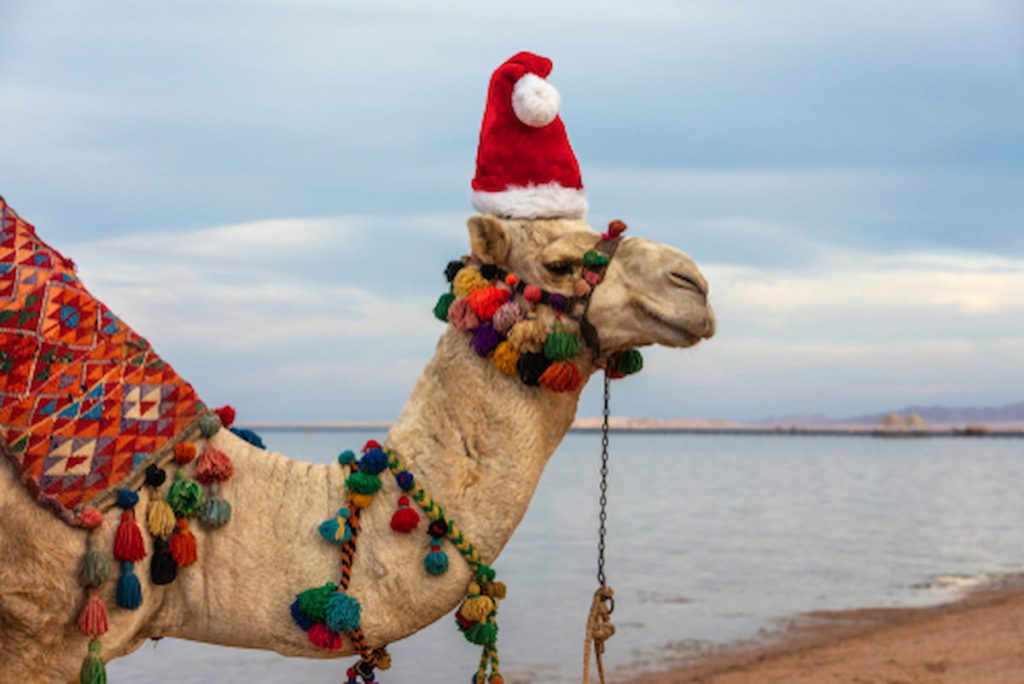
12. Cost of Traveling in Egypt
A reason why visiting Egypt is so beautiful is because it can work with all levels of one’s budget. Even the thriftiest traveler should have no problem getting an idea on how much money they will be spending on a daily basis. For instance, a daily budget of approximately $20-40 is more than enough for backpackers as it can cover the essentials like cheap inventories, street food, some transport and entrance fees. Those who rely on more means would normally spend 50 dollars to up to 100 especially if they decide to use nice restaurants, planes, and trains. Again, those visiting as tourists and would like to partake of the amenities services that have nice all-inclusive packages, a luxurious experience, but will have to part with at least 150 dollars unsurprisingly.
💸 Budgeting for Egypt: Costs, Currency & Tipping Culture
The official currency in Egypt is the Egyptian Pound, though a range of services accepts payment by means of credit card. Nevertheless, it is always important to have some cash at hand, especially in case of the markets, tips or other small expenses. Tipping (also known as baksheesh), on the other hand, plays a critical role in Egypt, and it is not only the hotel staff or the guide who should receive some money from you; even such attendants as toilet, elevator, even porters have to get practice tips from the visitors.
In particular, when buying souvenirs in one of bazars or at certain location in the city like Khan El-Khalili market, it is not usual for people buy it with the price which is mentioned by the seller butch. In a country like Egypt, ordinary things like eating popsicles from street vendors or sailing the traditional Nile boats which the Egyptians calls felucca can be anything from 50 to 200 EGP, utilizing the museums costs between 100-300 EGP, and standing up for a shorter camel ride in front of the pyramids without getting taken aback by the obnoxious rates might land at an average of between 200-400 EGP, depending on how one haggles. With prudence, Egypt can provide the best affordability for various categories of expenditure.

